Economics is not an exact science. Few people understand it with words like GDP, fiscal policy, repo rate. For instance, demonetisation is claimed to be an unmitigated disaster as well as a resounding success. Arvind Subramanian, Chief Economic Advisor (CEA) to Government of India, was in city recently on the invitation of Desiraju Family to deliver a talk on “The Indian Economy: Some Issues,” as part of the D.V. Narasimha Rao Lecture Series.
Star of Mysore Features Editor N. Niranjan Nikam caught up with Subramanian during dinner at the CFTRI Swimming Pool after the lecture. In this breezy and brief interview, he talks about his role as CEA, Privatisation, Universal Basic Income and his optimism on Structural Reforms. Excerpts…
By N. Niranjan Nikam
Star of Mysore (SOM): The post of Chief Economic Advisor (CEA) was lying vacant for more than a year. You succeeded Raghuram Rajan who left under controversial circumstances. How has your experience been?
Arvind Subramanian: Raghu did not leave CEA.
SOM: No, not CEA, but Reserve Bank of India (RBI).
Arvind Subramanian: My experience, it is one of the greatest jobs. I am extremely privileged to give back something to the country. There is so much that can be done like policy outreach. I am extremely privileged to be a part of the Government to help largely in the economic policy.
SOM: Being one of India’s most important Economists on Globalisation, you have said that the country will catch up with China in 20 or 30 years. But the gung ho mood in the Cabinet at the Centre and among the young Indians is, we could arrive in the next five or ten years?
Arvind Subramanian: (Smiles) See, a lot of it depends on what you mean by catching up and arrive. If you take up a simple number like per capita GDP, China’s per capita GDP is 13,000 to 14,000 dollars while ours is at 6,000.
SOM: So, China’s is more than double?
Arvind Subramanian: Yes, it is more than double. There is a lot of work to do to catch up with China. I think we will take some time before we catch up. In terms of how efficiently we deliver our public services, China is probably way ahead of us on that. We need to catch up on that as well. I think five to ten years thing is a bit ambitious. Of course, the bigger question is that should we aspire to be like China? And that is a different question. Many people feel that as long as we are domestically strong, people are happy, standards of living are rising, minimising conflict, providing health, education and essential services to all, it is fine. We should be focused inward, not outward. So, strength abroad, flows from strength at home first and foremost. I think as Vijay Kelkar famously said the best foreign policy is 10 per cent economic growth domestic. If we can achieve that then, automatically external benefits will follow.
SOM: Having spent your adult life abroad and after working with a US think-tank, how is it working with the Finance Department?
Arvind Subramanian: Oh, it is just extraordinary working in the government. My boss, Finance Minister Arun Jaitley, is someone who has just been extraordinary in giving my team and me the space, the support to do all that I want to do — analysis, speaking up, encouraging to be open. It is an extraordinary privilege to work with the Finance Minister. Same thing is true of my dealings with the Prime Minister’s Office as well. I am encouraged to speak up and consulted on all kinds of policy issues. So, it has been an extraordinary experience.
SOM: You have called ‘the file’, the only system still in place in spite of the IT revolution, ‘the beast.’
Arvind Subramanian: Yeah, Yeah.
SOM: Is there a way out of the time-tested system in government?
Arvind Subramanian: I think more and more files are being eliminated. In fact in my own Department, the Department of Economic Affairs, file is no longer used. It is being done electronically, we use e-office. So, file is soon going to be a thing of the past.
SOM: But still it is a long way to go, because, in most government offices the practice is still there.
Arvind Subramanian: I don’t know, but I am told in Andhra Pradesh it is all done electronically. I think it varies from State to State. But certainly in the Central government, for example, in the Ministry of Human Resources Development it is all done electronically. We are aspiring for that as well in the Ministry of Finance. I think we are making a lot of progress.
SOM: People working in Public Sector companies like BEML and BSNL are worried about privatisation because that is what is happening now. As an Economist, what do you think is the road ahead?
Arvind Subramanian: The Government’s policy, you know, the Prime Minister’s famous line — ‘minimum government, maximum governance’. Government should specialise in what it needs to do — which is to provide basic law and order, security, essential services, infrastructure and the private sector should do the rest. So, the message is clear. If the government is going to get out of certain activities, we have to plan to make sure that costs of exits are minimised and all stakeholders are consulted. At some point we have to have a clear sense of what is the government’s role and what is the private sector’s role.
SOM: Can you briefly share about Universal Basic Income (UBI), which you advocate for a country like ours?
Arvind Subramanian: If you read the Economic Survey that came out in February, it spells out the pros and cons; I think it has a lot of merit, which we discussed. But as the Finance Minister has always said we need to be sure that if we can afford it. Some estimates suggest that a reasonable Universal Basic Income is like 4, 5 per cent of GDP. We don’t have the fiscal space. So the question is how do we find the fiscal space?
One promising way forward on this is not the Central government but some State governments take this up and then see how it works, learn from the experience of the States. The beauty about India is that all these experiments can be done at the Central level and also at the State level.
SOM: No, when you say Universal Basic Income, 4 per cent, 5 per cent GDP, as an Economist, for instance, for a common man like me, how much do you think it is?
Arvind Subramanian: We calculate that in our Economic Survey. I think it depends upon what numbers and estimates. I think it is 8 to 10,000 dollars, I mean 8,000 to 10,000 rupees per person, per year. I think it depends upon what it is that you want to provide. I think that number comes from the poorest person. If you get him above the poverty line and that amount you give to everyone, that amount is that number.
If every Indian citizen is given a certain amount of cash, unconditionally, it gives him the freedom to buy anything he wants and this would help to cut down on subsidies on cooking gas, fertilisers, food subsidy. If we can use JAM (Jan Dhan, Aadhaar and Mobile) then the logistics of UBI can be taken care of.
SOM: As a CEA, you walk the thin line. How much can you criticise the government and its policies?
Arvind Subramanian: I think as CEA I have the extraordinary privilege of being able to provide inputs on policy internally, which is a privilege very few people have. It is true that in order to get that privilege one has certain responsibilities in terms of what is that one can and should say externally. Hence, a CEA has to assess very carefully how to balance that extraordinary privilege internally. It is a case by case scenario. You just have to play that by the ear.
SOM: Is the economy of the country in deep hole as the Opposition claims?
Arvind Subramanian: Oh, not at all. If you read the latest survey, there is a lot of optimism on Structural Reforms, GST, Air India, rationalisation of energy subsidies, new rules to address the bad assets in the banking system under the bankruptcy code, these are all very positive things. On the other side we said in the Economic Survey that there are some deflationary developments and growth has decelerated and we need to do all that we can to get growth back, up again. But to say that the country is in deep hole thing is a great exaggeration.
SOM: Renewable energy like solar and wind are the buzzwords today. But you are for coal as a major fuel. What are your thoughts on this?
Arvind Subramanian: I just delivered the Sixteenth Darbari Seth Memorial Lecture on August 17 on the topic ‘Renewables versus Fossil Fuels: An Indian reassessment of electricity generation.’ I think two or three big things that follow is, if you look at social costs of renewables and coal, it seems to my reading and the evidence is that social costs of renewables are higher than coal and, therefore, there is window to ramping up coal production and thermal power generation. Also it seems to me that if the social cost of what I am saying, then the question does arise why are we subsidising renewables on the one hand that displaces thermal power, creates NPAs and so on for which we have to pick up the tab that creates a double burden on the government. Shouldn’t we think about this? So we have to think about coal and thermal power jointly, not separately.
SOM: What is the effect of demonetisation and GST on the country?
Arvind Subramanian: I think you should read the Survey. We have done a very careful analysis on what could be the long term benefits and short term cost. You see in terms of cash in the economy, it has come down by 20 per cent. Digitalisation has picked up across the board, tax-payers have increased possibly because of demonetisation. We also see certain short term impact, especially on the informal sector.
We have done a new analysis which shows that demonetisation did lead to an increase in demand for MNREGA in the poorer States by about 25 to 30 per cent. So as we had said in the survey done in February, there are potential long term benefits and short term costs and it is playing out almost in the way we had analysed in Volume 1 in February. You should read the Survey which is publicly available on the website.
SOM: But were you aware of demonetisation?
Arvind Subramanian: (Smiles wryly) I keep getting asked that question. But that is something; I think it is not an interesting question. That is for the historians, yeah, that is for the historians…



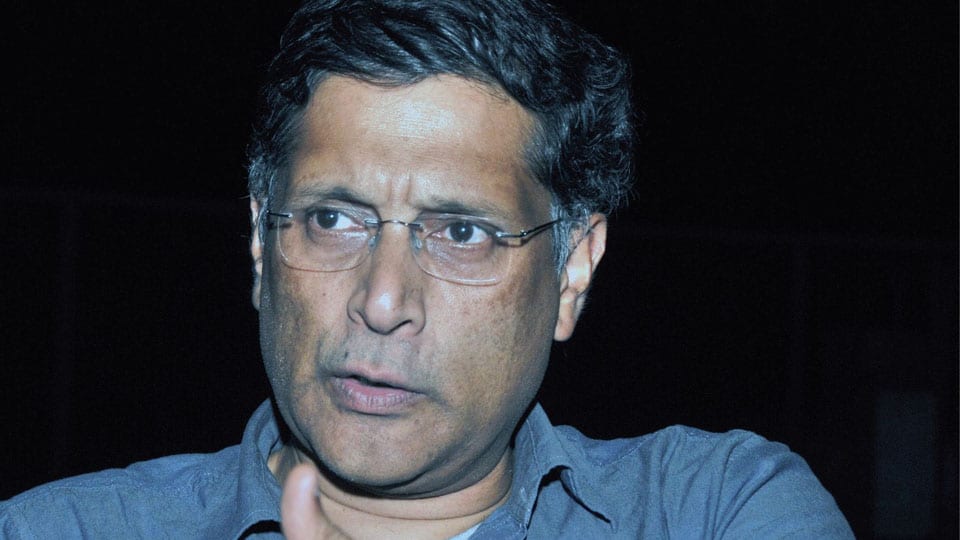
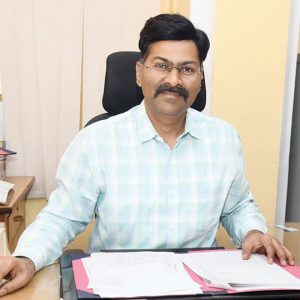
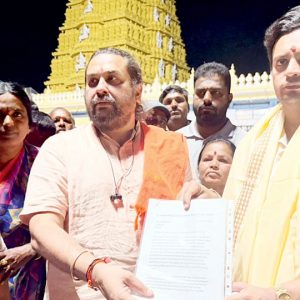
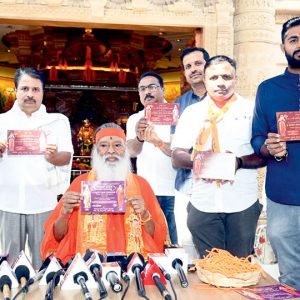
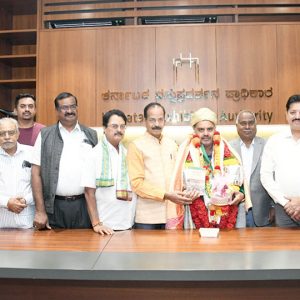
Corrupt India with shambolic political machinations which are illegal like we see in Tamil Nadu today, is an example where the corrupt democracy will simply stagger on with more millions under the UN-defined poverty threshold and very very rich holding billions of US Dollars, which they trust not the pathetic rupees. Just before 10 years after independence, then in Mysore, I saw the mad rush for money-making by greedy Congressmen, who used their ” payback” argument, meaning their sacrifice during the independence struggle, should be amply rewarded, and hence helped themselves with government money as they were in power then. Have we forgotten Kengal Hanumanthaiah and his Vidhana Soudha project where he repeated the above ” payback” bonanza. The flimsy enquiry later, not surprisingly cleared him.
China is a superpower, where as India is a corrupt power with no influence internationally.